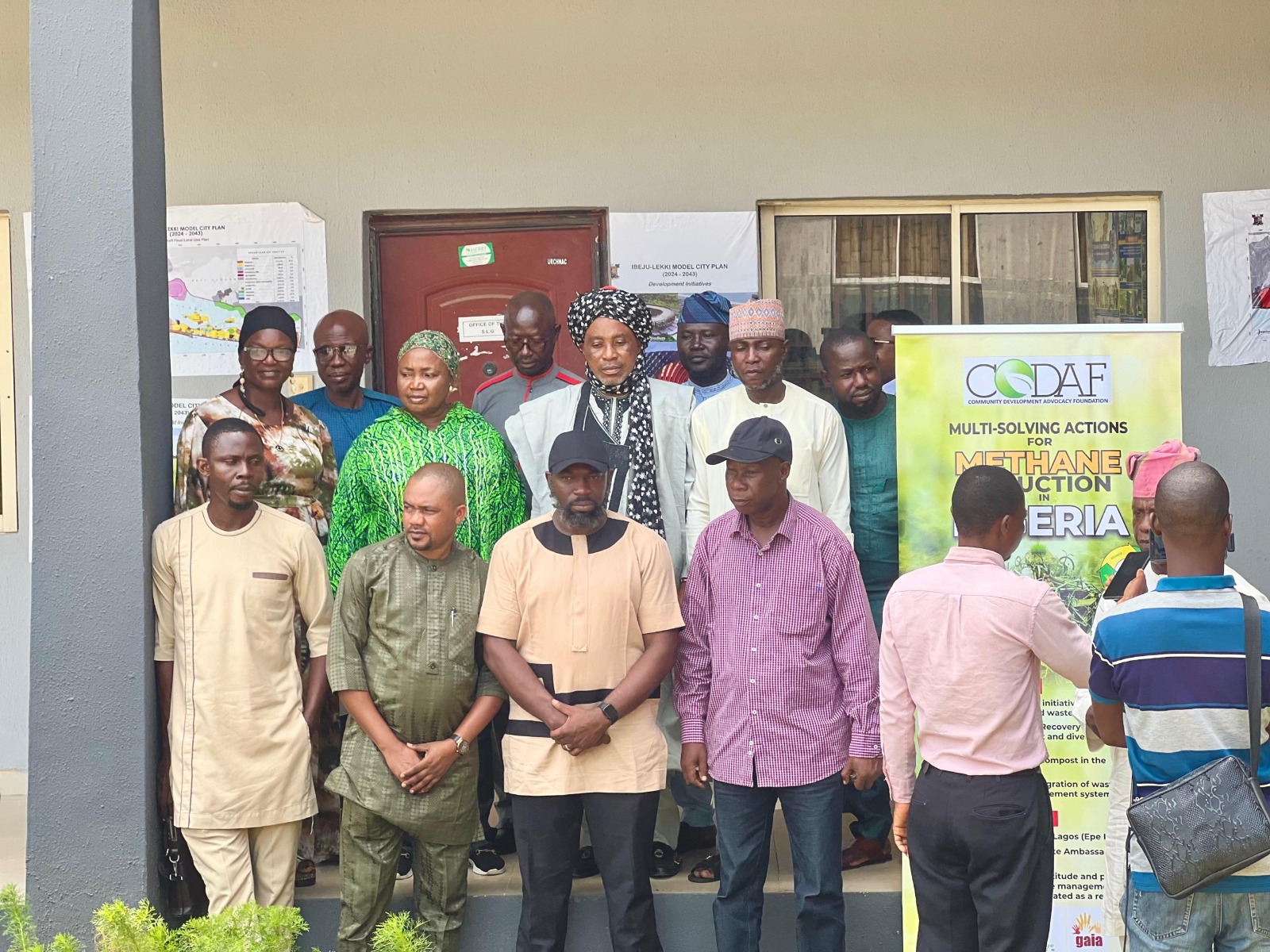
By Edu Abade
Residents of Epe Community in Lagos State, comprising local government officials, households, farmers, waste pickers and market officials have expressed delight at the methane reduction project that has culminated in the sitting of a Waste Materials Recovery facility in Epe.
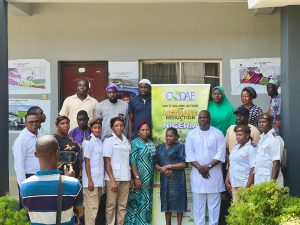 The project was unveiled at the presentation of a baseline report on Multi-Solving Action for Methane Reduction in Nigeria (MAMRN) by the Community Development Advocacy Foundation (CODAF), a member of the Global Alliance for Incinerator Alternatives (GAIA) at the Epe Council Headquarters.
The project was unveiled at the presentation of a baseline report on Multi-Solving Action for Methane Reduction in Nigeria (MAMRN) by the Community Development Advocacy Foundation (CODAF), a member of the Global Alliance for Incinerator Alternatives (GAIA) at the Epe Council Headquarters.
Chairman of the Council, Princess Surah Animashaun, who was represented by the Vice Chairman, Hon. Sikiru Adeniyi Owolomose, commended the CODAF team comprising its Executive Director, Richard Benin, Programme Manager, Environment, Melody Enyinnaya, Onyeka Venath and Jeru Ubrei-Maimoni for the initiative in the area.
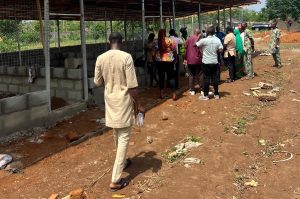 He said: “Waste to wealth initiative remains crucial for a better environment and sustainable future and as such, organisations, institutions, groups, communities and individuals should be encouraged to embark on projects targeted at gathering wastes (including plastics) for recycling, which will improve the environment.”
He said: “Waste to wealth initiative remains crucial for a better environment and sustainable future and as such, organisations, institutions, groups, communities and individuals should be encouraged to embark on projects targeted at gathering wastes (including plastics) for recycling, which will improve the environment.”
Speaking, Benin stressed the importance of green and sustainable agricultural practices, adding that Epe was chosen for the MAMRN project due to its high methane generation activities as an agricultural and fishing hub in Lagos State.
Also speaking, Senior Programme Officer with Sustainable Research and Action for Environmental Development (SRADev Nigeria), Victor Fabunmi, stressed the need for sustainable waste management through awareness creation and education in transforming wastes to resources, adding that implementation of such programmes were ongoing in Lagos, Jos, Edo, Abuja and other parts of the country where waste management has become a challenge.
On her part, Enyinnaya, who presented the objectives, activities and expected outcomes of the project, explained that the project addresses one of the most potent, yet under-addressed greenhouse gas emissions affecting the climate system.
“The project takes a holistic approach by targeting methane emission in the waste sector while simultaneously creating co-benefits for local communities and their ecosystems just as it intends to train farmers on the use of non-petroleum based chemicals in their farming activities,” she stated.
Objectives of the project are to promote zero waste initiatives and awareness leading to methane and waste reduction; establish a Material Recovery Facility to enhance the waste management and diversion of waste from dumpsites and landfills and mobilise community action against waste to energy projects.
Others are to promote the use of compost in the agricultural sector; advocate the integration of waste pickers into the formal waste management system in Nigeria and increase the recovery rate of recyclable and compost materials by a reasonable percentage.
She listed the project activities to include community consultations; stakeholders’ mapping and baseline survey; creation of zero waste ambassadors; building of a Material Recovery Facility (MRF); My Zero Waste Farm Project (MZWFP); creation of Zero Waste Farmers Network and establishment of Waste Parliament in Lagos.
Other activities are the Expanded Waste Parliament (EWaP); policy and media advocacy; Zero Waste Market Campaign; Waste Pickers Organizing; My Zero Waste City Radio Jingle; MAMRN Experience Sharing Webinar, as well as monitoring and evaluation.
Enyinnaya emphasised that the project, for which CODAF has already spent over N20 million, will significantly reduce methane emissions in the waste sector thereby improving air quality and public health in the community, while the construction and operation of the MRF will create thousands of green jobs and promote waste sorting, reusing, recycling and composting.
The project will also remarkably improve the agricultural sector and further empower farmers on the use of compost for an increased crop yield just as residents will benefit from training programs on zero waste.
On the expected outcomes, she said: “A fully operational MRF in Epe will recover 2.3 tons of plastics and other non-biodegradable waste per week and treat 2.7 tons of organic waste per week (using composting and black soldier fly technology).
“It will establish a Zero Waste Ambassadors campaign (in Lagos) in collaboration with other GAIA members in Nigeria; an active Zero Waste Farmers Network, as well as a cleaner and healthier environment. It will engender improved knowledge, attitude and practices of Lagos residents towards waste management, where waste is reduced and treated as a resource due to the Zero Waste Ambassadors Project.”
In his presentation, Chief Research Officer and Senior Lecturer, National Centre for Energy and Environment, Energy Commission of Nigeria (ECN), University of Benin, Dr. Chukwudi Nnaemeka Emeribe, explained that the survey targeted households, farmers, waste pickers, market and local government officials, adding that the team visited waste and landfill sites, composting facilities and examined existing waste management policies.
“Our purpose was to quantify waste practices and attitudes towards organic composting, analyse policy gaps and institutional barriers to waste management, as well as understand the cultural and socio-economic factors affecting adoption and access to infrastructure. We also evaluated waste diversion capacity, identified policy strengths and gaps in methane reduction efforts with a view to establishing a scientific benchmark for emissions.”
He said most of the targeted groups expressed the willingness and readiness to adopt and explore the green alternative in their agricultural practices to engender a sustainable ecology and brighter future.






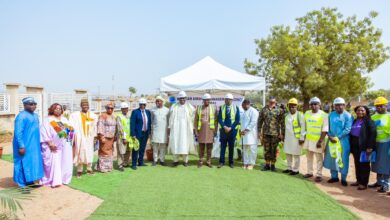


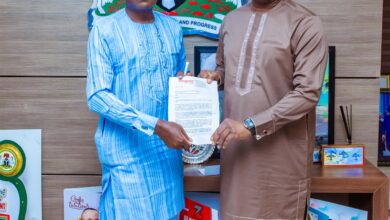
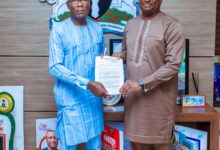

7idbf1
ldilub